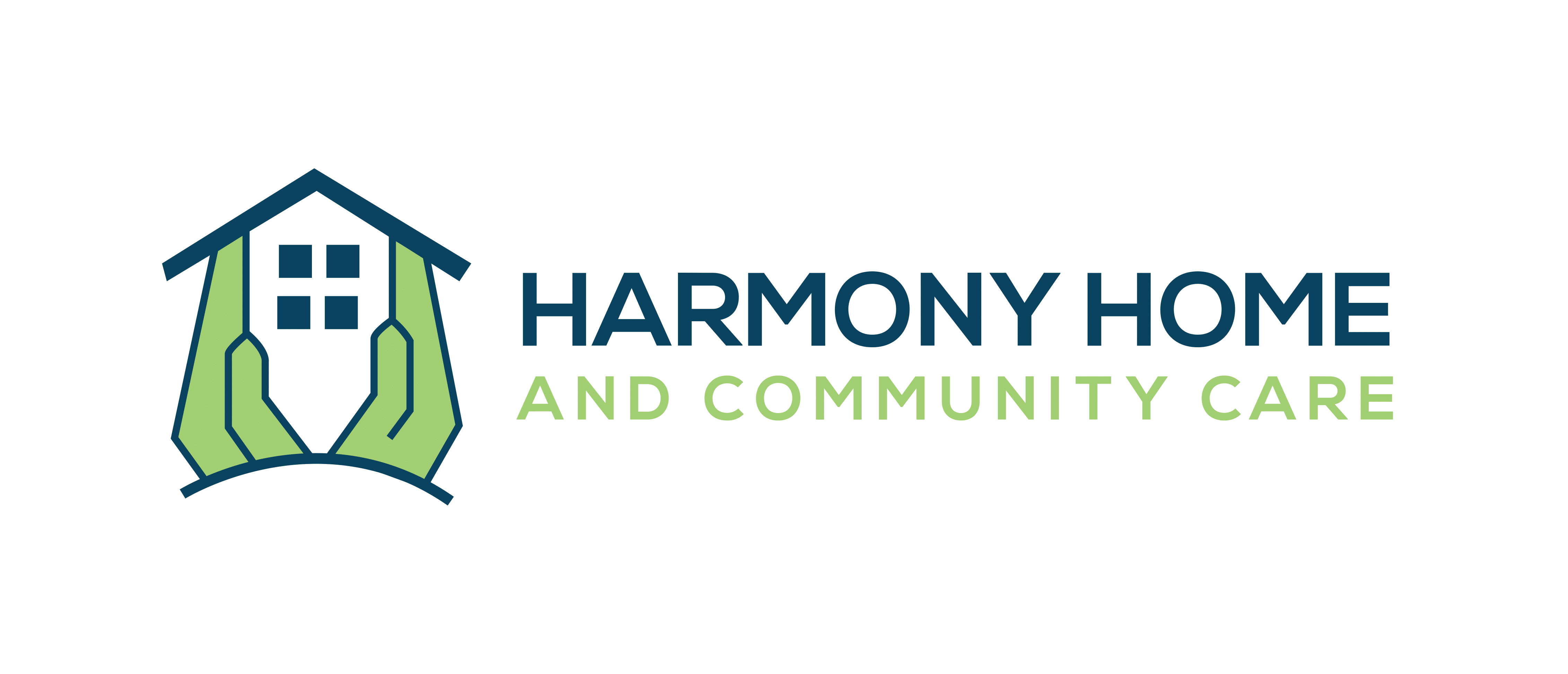Harmony Homes
June 29, 2024
Choosing the Right NDIS Supports for Your Needs

Choosing the Right NDIS Supports for Your Needs
The National Disability Insurance Scheme (NDIS) provides support and services to Australians living with a disability, with the goal of promoting independence and improving quality of life. One of the key aspects of the NDIS is the ability for participants to choose the supports and services that best meet their individual needs. With so many options available, it can be overwhelming to decide which supports are right for you. Here are some tips to help you choose the right NDIS supports for your needs.
1. Identify Your Goals and Needs
Identifying your goals and needs creates a roadmap for your life. It gives you a sense of direction and purpose, enabling you to make intentional choices and prioritize your actions. Without a clear understanding of what you want to achieve, it is easy to get lost or feel unfulfilled. Goals provide motivation and a sense of accomplishment when they are achieved, fostering personal growth and boosting self-confidence.
Tips for Identifying Your Goals and Needs
· Self-reflection:
Take time to reflect on your values, passions, and interests. Think about the things that make you happy and fulfilled. Consider your strengths and aspirations. What are some accomplishments you want to achieve in the short term and long term? Reflecting on these questions will help you gain clarity on your goals and needs.
· Write them down:
Once you have a sense of your goals and needs, write them down. Putting your thoughts on paper helps solidify them and makes them more tangible. It also allows you to refer back to them and track your progress over time.
· Categorize and prioritize:
Categorize your goals and needs into different areas of your life such as personal, professional, health, relationships, and so on. Prioritize them based on their importance to you. This step provides structure and helps you focus on the most significant areas.

Recent Posts
Categories
· Set SMART goals:
Ensure that your goals are Specific, Measurable, Achievable, Relevant, and Time-bound. This framework increases the likelihood of successfully achieving your goals. For example, instead of saying “I want to be healthier,” set a SMART goal like “I will exercise three times a week and eat a balanced diet to lose 10 pounds in three months.”
· Regularly review and revise:
Goals and needs can evolve over time. Review them regularly to ensure they still align with your values and desires. Revise them as necessary to reflect any changes or new ambitions that arise.
· Seek support:
Sometimes, it can be challenging to identify our goals and needs on our own. Seek support from trusted friends, family, or a professional coach or counselor. They can provide guidance, ask thought-provoking questions, and help you gain new insights into yourself.
1. Understand Your NDIS Plan
Your NDIS plan is more than just a document; it is a blueprint that outlines the supports and services available to you, enabling you to reach your full potential and enhance your quality of life. Understanding your NDIS plan is crucial for several reasons:
· Personalized Support:
Your NDIS plan is customized to address your specific needs, preferences, and goals. Understanding its contents allows you to make informed decisions about the support and services that will best meet your needs.
· Harnessing Resources:
Your plan delineates the funding allocated to you across various support categories, such as core supports, capacity building supports, and capital supports. By comprehending your plan, you can effectively utilize these resources to access the supports that will benefit you the most.
· Advocacy and Empowerment:
When you understand your NDIS plan, you are better equipped to advocate for the supports you require. It empowers you to actively participate in decisions about your care and support, promoting a sense of autonomy and self-determination.
· Monitoring Progress:
By familiarizing yourself with your plan, you can track your progress, identify areas of improvement, and make adjustments as necessary. This ensures that your supports evolve alongside your changing needs and aspirations.
Tips for Understanding Your NDIS Plan
· Read and Review Thoroughly:
Take the time to read through your NDIS plan carefully. Pay close attention to the goals and objectives outlined, as well as the funding and supports allocated to you.
· Ask for Clarifications:
If there are aspects of your plan that you do not understand, don’t hesitate to seek clarification from your NDIS planner or support coordinator. They can provide insights and explanations to help you grasp the content of your plan.
· Seek Professional Assistance:
In some instances, it may be beneficial to enlist the help of a disability advocate or support worker who can assist you in interpreting and making the most of your NDIS plan.
· Consider Your Individualized Budget:
Understand the breakdown of your funding and how it can be utilized across different support categories. This will help you allocate resources in a manner that best suits your needs and goals.
· Express Your Preferences:
Your NDIS plan should reflect your preferences and the outcomes you wish to achieve. If you feel that certain supports or funding allocations do not align with your goals, communicate these concerns during plan reviews and discussions.
1. Seek Guidance from NDIS Providers
NDIS providers are organizations or individuals approved by the NDIS to deliver a range of support services to participants. From allied health professionals and support workers to therapists and assistive technology specialists, NDIS providers offer a diverse array of services tailored to meet the unique needs of individuals with disabilities. Some of the key roles and responsibilities of NDIS providers include:
· Assessment and Planning:
NDIS providers conduct assessments to identify participants’ goals, needs, and preferences. They assist in developing individualized support plans that align with participants’ aspirations and objectives.
· Service Delivery:
NDIS providers deliver a wide range of services and supports specified in participants’ plans, such as personal care, therapy, home modifications, and community participation programs.
· Information and Advocacy:
Providers offer guidance and information to participants and their families about available supports, services, and funding options under the NDIS. They also advocate on behalf of participants to ensure their needs are met effectively.
· Continuous Monitoring and Review:
Providers regularly review participants’ progress, adjust support plans as necessary, and ensure that services remain aligned with participants’ evolving needs and goals.
Benefits of Seeking Guidance from NDIS Providers
· Expertise and Specialization:
NDIS providers possess specialized knowledge and expertise in various areas of disability support, ensuring that participants receive high-quality and tailored services that cater to their individual needs.
· Comprehensive Support:
By seeking guidance from NDIS providers, participants can access a wide range of services under one roof, streamlining their support journey and ensuring continuity of care.
· Navigating Complex Processes:
The NDIS ecosystem can be intricate and bureaucratic. NDIS providers have a deep understanding of the system and
can assist participants in navigating the various processes, paperwork, and requirements involved.
· Empowerment and Advocacy:
Providers empower participants by equipping them with the knowledge and resources needed to make informed decisions about their care and support. They also advocate on behalf of participants to ensure that their voices are heard and their needs are met.
· Holistic Approach to Care:
NDIS providers take a holistic approach to support, addressing participants’ physical, emotional, social, and developmental needs. They work collaboratively with participants and their support networks to foster overall well-being and independence.
1. Consider Your Support Preferences
At the heart of the NDIS is the recognition that individuals with disabilities are the experts in understanding their own needs, preferences, and aspirations. Embracing this principle, participants are encouraged to actively consider their support preferences, allowing them to have a voice in decision-making and shaping the supports they receive. Some essential aspects of support preferences to consider include:
At the heart of the NDIS is the recognition that individuals with disabilities are the experts in understanding their own needs, preferences, and aspirations. Embracing this principle, participants are encouraged to actively consider their support preferences, allowing them to have a voice in decision-making and shaping the supports they receive. Some essential aspects of support preferences to consider include:
· Personal Goals and Aspirations:
Participants should reflect on their personal goals, dreams, and aspirations and consider how their support needs can align with these aspirations. Whether it’s pursuing education, engaging in hobbies, or participating in community activities, personal goals should be an integral part of NDIS planning.
· Cultural and Community Connections:
Participants should have the opportunity to maintain and foster their cultural and community connections. Considering support preferences should include a focus on preserving cultural identity and fostering connections within diverse communities.
· Choice and Control:
Individuals with disabilities should be given the opportunity to make choices about the supports they receive, fostering a sense of autonomy and control over their lives. Considering support preferences is essential in ensuring that participants can access supports that honor their choices and preferences.
Tips for Articulating Support Preferences in NDIS Planning
· Open and Honest Communication:
Engage in open and honest communication with your NDIS planner or support coordinator. Clearly articulate your support preferences, goals, and aspirations to ensure that your NDIS plan reflects your individuality.
· Document Preferences:
Consider documenting your support preferences, including your personal goals, cultural considerations, and specific support needs. This documentation can serve as a valuable reference point during NDIS planning and review processes.
· Advocate for Your Preferences:
Don’t hesitate to advocate for your support preferences. Communicate your choices and actively participate in the decisions that shape your NDIS plan, ensuring that your voice is heard and your preferences are respected.
· Regularly Review and Adjust:
Support preferences can evolve over time. It’s essential to regularly review and adjust your NDIS plan to reflect any changes in your preferences, needs, or goals.
1. Evaluate the Effectiveness of Supports
By actively evaluating the effectiveness of their supports, individuals with disabilities and their support networks can ensure that their NDIS plans are personalized, responsive to their evolving needs, and aligned with their aspirations.
The process of evaluating support effectiveness serves as a cornerstone of personalized NDIS planning, offering numerous benefits to participants, their families, and carers:
· Personalization and Tailoring:
Through the evaluation of support effectiveness, participants can assess whether the supports they receive align with their individual needs, preferences, and goals. This process allows for the personalization and tailoring of supports to meet specific requirements.
· Empowerment and Choice:
By evaluating support effectiveness, individuals are empowered to actively engage in decision-making, fostering a sense of control over their support journey and the choices they make.
· Quality Assurance and Continuous Improvement:
Continuously evaluating support effectiveness provides an opportunity to ensure that the services delivered align with high-quality standards and to identify areas for improvement or adjustment.
· Goal Achievement and Well-Being:
Effective evaluation allows participants to assess the impact of their supports on their overall well-being, progress towards goals, and participation in community life.
Key Aspects of Evaluating Support Effectiveness
· Goal Alignment:
Evaluate whether the supports received are aligned with your personal goals, aspirations, and desired outcomes. Assess whether the support is contributing to your progress and well-being.
· Quality of Life Impact:
Consider the impact of the supports on your overall quality of life, including your ability to engage in meaningful activities, maintain relationships, and pursue your interests and hobbies.
· Adaptability and Flexibility:
Evaluate whether the supports are adaptable to changes in your needs and circumstances. Assess whether the support can evolve as your requirements change over time.
· Provider Collaboration:
Engage in conversations with your support providers and seek their input on the effectiveness of the supports they deliver. Collaboration with providers can offer valuable insights into your support journey.


